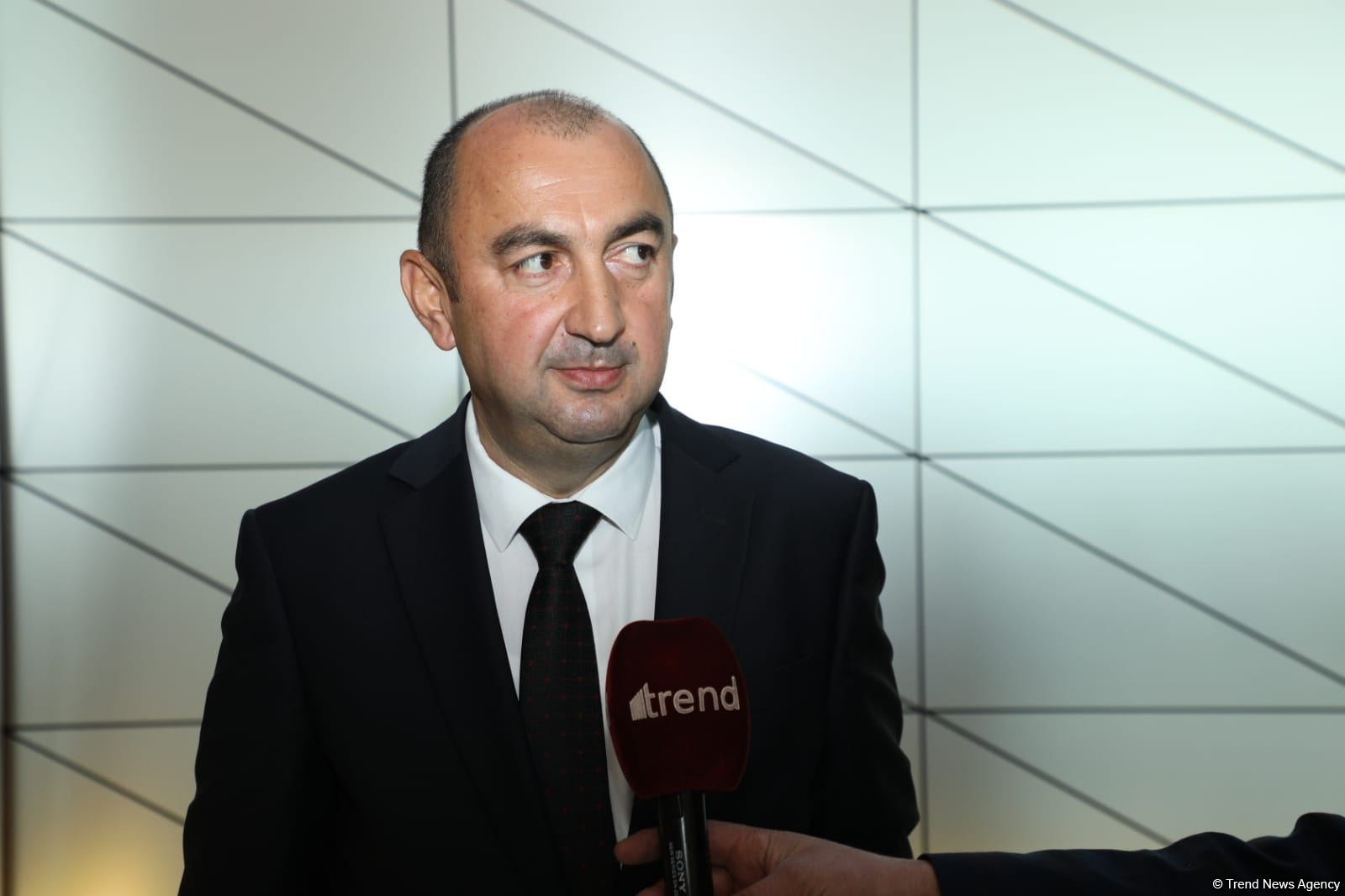BAKU, Azerbaijan, November 21. The absence of several countries' participation in the Water Convention in the region makes cross-border cooperation impossible, said Vugar Kerimov, Deputy Minister of Ecology and Natural Resources of Azerbaijan, Trend reports.
In his address to the event on "The Role of Climate-Informed Transboundary Water Management in Ensuring the Progress of the United Arab Emirates in the Framework of Global Resilience to Climate Change" as part of the COP29, Kerimov spoke on the priorities of the convention.
"Transboundary waters are one of Azerbaijan's strategic priorities. Our country is located in the lower reaches of large transboundary water bodies, such as the Hakari, Bargushad, Okhchuchay, Kura, and Aras rivers, whose waters flow into the Caspian Sea, playing a significant role in the socio-economic development of the region. For many years, the Okhchuchay River has been severely polluted in Armenia, posing a significant threat to the ecosystem and water security of the entire region.
Azerbaijan places great importance on joint efforts in transboundary water management based on international law principles and has been a member of the United Nations Water Convention since 2000. Unfortunately, the lack of participation by other countries in the Water Convention in the region hinders cross-border cooperation and limits the potential for sustainable water management.
Membership in this convention is of strategic importance, especially considering the challenges our country faces in managing transboundary water resources. In particular, with about 70 percent of Azerbaijan's water resources derived from transboundary rivers, the cooperation opportunities provided by international law are crucial.
Fair and sustainable management of transboundary waters is not the responsibility of one country alone but of the entire region. To achieve this, we must intensify our joint efforts.
Our gathering here today proves that we are ready to act together and share our knowledge and experience. I am confident that the discussions held at this event will create new opportunities for collaboration in transboundary water management and contribute to building a sustainable future for the entire region," he said.
The 29th session of the Conference of the Parties to the UN Framework Convention on Climate Change (COP29), which will run until November 22, opened at the Baku Olympic Stadium on November 11.
The main expectation from COP29 is to agree on a fair and ambitious New Collective Quantitative Goal (NCQG) on climate finance.
The UN Framework Convention on Climate Change is an agreement signed at the Rio Earth Summit in June 1992 to prevent dangerous human interference in the climate system. The acronym COP (Conference of Parties) stands for “Conference of Parties” and is the highest legislative body overseeing the implementation of the Framework Convention on Climate Change.
A total of 198 countries are parties to the Convention. Unless otherwise decided by the parties, COP is held annually. The first COP event was held in March 1995 in Berlin, and its secretariat is located in Bonn.
Stay up-to-date with more news on Trend News Agency's WhatsApp channel







